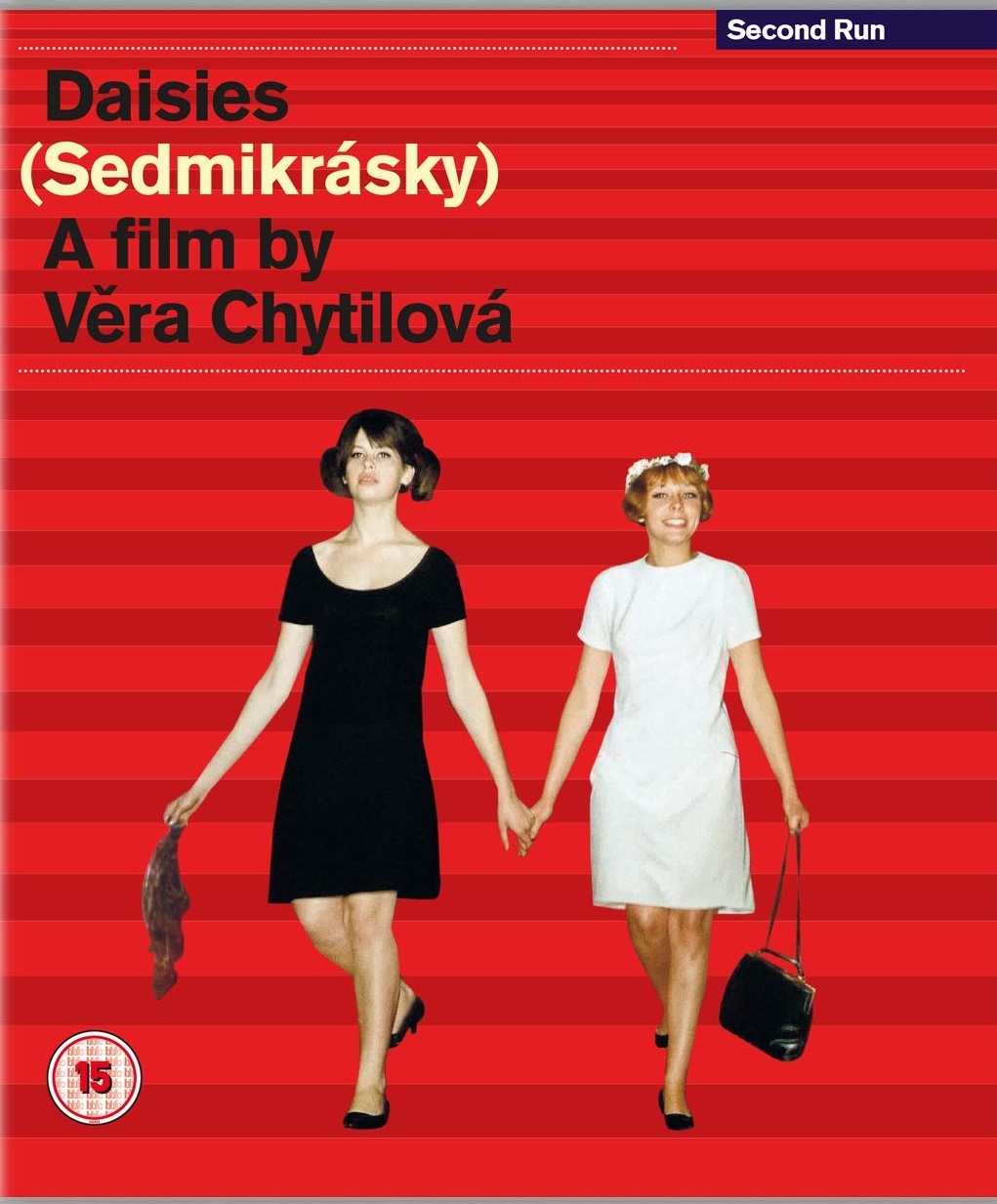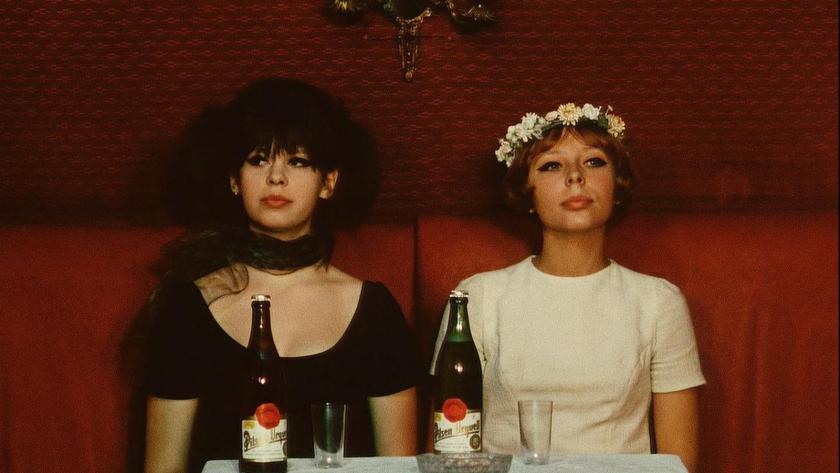Věra Chytilová’s 1966 film Daisies almost defies description, though what initially seems like 75 minutes of plot-free silliness does coalesce into something bordering on the coherent. Not that there’s anything wrong with that, to quote Seinfeld. Daisies is what it is, and approaching it with open eyes is a whole lot of fun. Opening with aerial footage of World War Two bombing raids, we soon cut to Chytilová’s young protagonists, played by Jitka Cerhová and Ivana Karbanová. Both called Marie, they recline in swimming costumes and make nonsensical conversation. “Nobody understands anything,” they intone, their limbs jerking and creaking like those of mannequins. “Does it matter?” is repeatedly countered with, “It doesn’t matter,” as the pair’s exploits unfold.
Marie and Marie court several seedy-looking older men, and display a healthy appetite for fine dining and good wine. One brief early scene suggests a biblical fall from grace, their irresponsible behaviour (“We’ve gone bad!”) a consequence. There’s a failed suicide attempt and a loopy sequence showing the girls gleefully disrupting a naff cabaret act. Chytilová’s rejection of conservative societal norms is reflected in Daisies’ technical style. Jump cuts, abrupt switches from colour to tinted monochrome recur throughout, along with the characters’ pointblank refusal to adhere to what might pass for conventional acting, their lines delivered robotically and impassively. Chytilová is credited as the film’s screenwriter, but she acknowledged that her script was just a starting point for what developed (“We decided to be bound by nothing. Absolutely nothing.”).
 There’s a terrific moment near the close where the two Maries set upon each other with scissors, the screen filled with disembodied fragments resembling torn scraps of paper. No lasting harm is done, and they’re soon indulging their appetites at a well-stocked buffet table in alarmingly visceral fashion. We end as we begin, with more war footage and a dedication “to all those whose sole source of indignation is a trampled-on trifle”.
There’s a terrific moment near the close where the two Maries set upon each other with scissors, the screen filled with disembodied fragments resembling torn scraps of paper. No lasting harm is done, and they’re soon indulging their appetites at a well-stocked buffet table in alarmingly visceral fashion. We end as we begin, with more war footage and a dedication “to all those whose sole source of indignation is a trampled-on trifle”.
So far, so New Wave, but the feverish, manic energy of Daisies makes for deliciously uncomfortable viewing. Predictably, the film wasn’t well-received. The Czechoslovak authorities objected to scenes showing food being wasted, and it was judged “to have nothing in common with the Republic, socialism and the ideals of communism”. Chytilová’s career stalled for some years but she refused to move abroad, resuming work as a director through to her death in 2014. Second Run’s Blu-ray package includes an hour-long documentary about Chytilová, and Daisies can be rewatched with a choice of commentaries: one from film historians Peter Hames and Daniel Bird, the other from cult podcasters Samm Deighan and Kat Ellinger. The restored image is spectacular, allowing Chytilová’s visual effects to dazzle.













Add comment